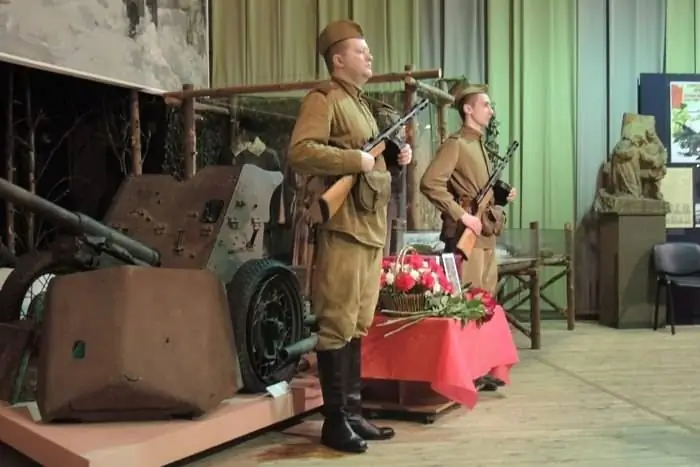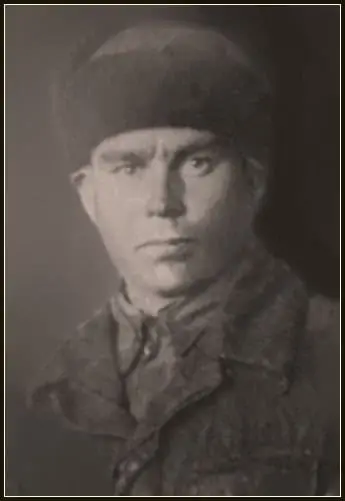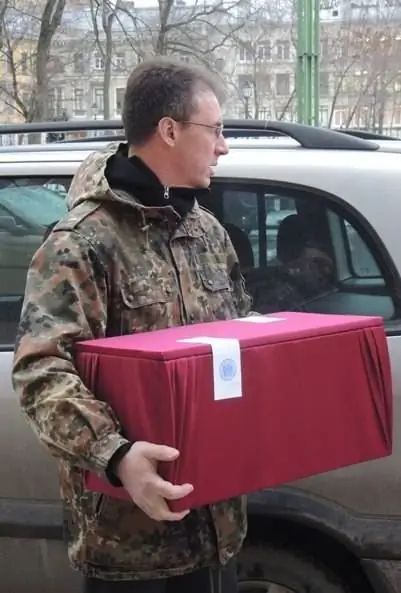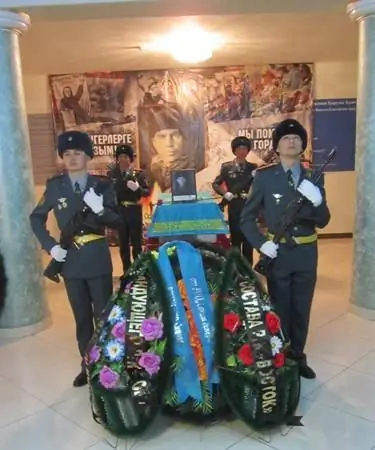- Author Matthew Elmers elmers@military-review.com.
- Public 2023-12-16 21:49.
- Last modified 2025-01-24 09:17.

The war, cutting off their lives, took those who fought alongside to other lands, and not always someone can point out the place where ordinary Ivanov, Petrov or Sidorov died.
But sometimes they come back. And then the generals, stretching out at attention, salute the one who did not feel sorry for himself, so that we can live today, raise children and make plans for the future …
NSthat internationally renowned story is considered to be out of the ordinary today. The citizens of the three states, who had never heard of each other before, worked for six months to calm one soldier. What united them? Perhaps the memory of how recently we lived in an immense country common to all. It did not even occur to anyone that she would one day be torn to pieces alive, and people, who only yesterday considered each other brothers, would turn their backs on each other.
So, a simple Russian guy born in the Kazakh outback, Nikolai Sorokin, who was drafted into the army in July 1941, was sure: standing on the outskirts of Leningrad, choking in the blockade ring, he was defending his land, his Fatherland. And then, freeing Narva, he did not doubt for a second: who, if not he, should liberate the Estonian farms, towns and villages occupied by the evil enemy.
In the only letter that came from the front in December 1941, there are only a few words: “We are standing near Leningrad, a short respite. Battle tomorrow. Antonina, take care of the children!"
Why on this day he wrote for the first time in six months, now you do not know. And whether it is necessary to plunge into other people's family affairs, when it is already clear: Antonina was waiting. Even after the notification came that her husband was missing in the battles near Leningrad. I waited and searched. I wrote to various military authorities. She did not lose hope, receiving the same answer from everywhere: “Private Nikolai Fedorovich Sorokin in the battle for the village of Lisino-Corps of the Leningrad Region opened artillery fire on enemy infantry and carts. During firing, his gun destroyed 6 enemy tanks and 1 observation post. He also suppressed the enemy's gun, standing on direct fire, which ensured the successful advance of the infantry. " And in conclusion - all the same terrible words: "He disappeared during the fighting without a trace" …
Probably no one would have known anything about the soldier's fate. An ordinary story, in principle, from the category of those that can be told in almost every former Soviet family. But a case intervened, which turned its further course by 180 degrees.
He who seeks will understand
Last fall, when leaving with his metal detector near Narva, the Estonian search engine Yuri Kershonkov did not really hope for anything. It is well known that thousands of unburied fallen warriors lie in the ground to this day. But it becomes more and more difficult to search for the remains every year. The reason is simple: forests are being cut down in Estonia, and machinery shovels the earth in such a way that it becomes almost impossible to find the remains. But on this day he was lucky. Moreover, they were rarely lucky. When a soldier was found, there was his award, on which the number was clearly visible.

Returning home, Yuri called a friend, the representative for international affairs of the Tallinn Society of World War II Participants, the head of the Front Line military history club, Andrei Lazurin. He immediately requested the Central Archives of the Russian Ministry of Defense. A month later, I received the answer: "The Medal" For Courage "was awarded on February 1, 1944 to a native of the city of Semipalatinsk in the Kazakh SSR, Private 781st Infantry Regiment of the 124th Infantry Division Nikolai Sorokin."
The fact that there was one less unknown soldier brought a lot of joy. But Lazurin knew from experience that in order to calm a soldier, he would have to work hard. Therefore, I turned to my colleague - the chairman of the Osting club Igor Sedunov for help.
The joint work of the two organizations began.
How many phone calls were made, how many letters and requests were written - it's hard to say. They lost count at the end of the second ten. The answers received from archives, government agencies, diplomatic missions and public organizations were collected in a special folder. So the fate of the hero was restored bit by bit. A special place in the folder “N. F. Sorokin”was occupied with the correspondence with the soldier's daughters. Two already quite middle-aged women, having learned that their father had been found, whom they had been waiting for 75 years in spite of the time, immediately responded: “If you can somehow transport the remains to Kazakhstan, help! We will take a bank loan and pay for everything!"
No credit was needed. Amanzhol Urazbayev, the chairman of the Counter-Terrorism Committee, got involved in the case, and the Kazakh side covered part of the costs. The missing amount was added by the St. Petersburg philanthropist Hrachya Poghosyan. And the story has entered its final phase …
Changing places does not change fame
The Russian Kazakh, who gave his life for Estonia, was escorted to Kohtla-Järve. The Kazakh and Russian diplomats who arrived at the ceremony gave interviews to TV people one by one, telling how important it is not to forget your roots.

When the Consul of the Republic of Kazakhstan Aset Ualiev began to seal the small coffin covered with red silk, one of the veterans living in Estonia - the regimental intelligence officer Ivan Zakharovich Rassolov - quietly, not for the cameras, said: ""
The guys from Austing and Front Line, who know how difficult it is to conduct prospecting work in the Baltics, looked at each other. But they kept silent. What is the point of talking about difficulties that, albeit with great creak, but still manage to be overcome. This means that there is hope that many more established names will appear. So, we must not chat, but work …
On the same evening, Nikolai Sorokin was buried in the St. Petersburg Church of the icon of the Mother of God "Joy of All Who Sorrow", and the next morning the coffin was delivered to the Museum of Defense and Siege of Leningrad. And again - solemn speeches of officials, a guard of honor, photojournalists and television men choosing a winning angle.
The search engines again did not go to make solemn speeches: you still cannot express in words what you feel when you are sure that a little more - and the soldier who has become a part of your destiny will rest in peace in his native land.

Then - the replacement of the wooden coffin made by the search engines for a zinc one and a flight to Astana, where a huge crowd gathered at the airport early in the morning paid tribute to the hero's memory with a minute of silence. Diplomats, generals, members of the Counter-Terrorism Committee, deputy defense ministers, deputies of parliament, the Immortal Regiment of Astana, veterans, search engines, people with children who came from all over the city - everyone saw off a simple soldier returning home from the war …
A day later, the remains of Nikolai Fedorovich Sorokin were devoted to their native land with all military honors.
Kazakhs have a saying: "" … And you can't argue with that. So, it is correct that the long journey from the war of an ordinary 781st rifle regiment of the 124th rifle division ended at the cemetery of the city of Semey, which was called Semipalatinsk during his lifetime …






